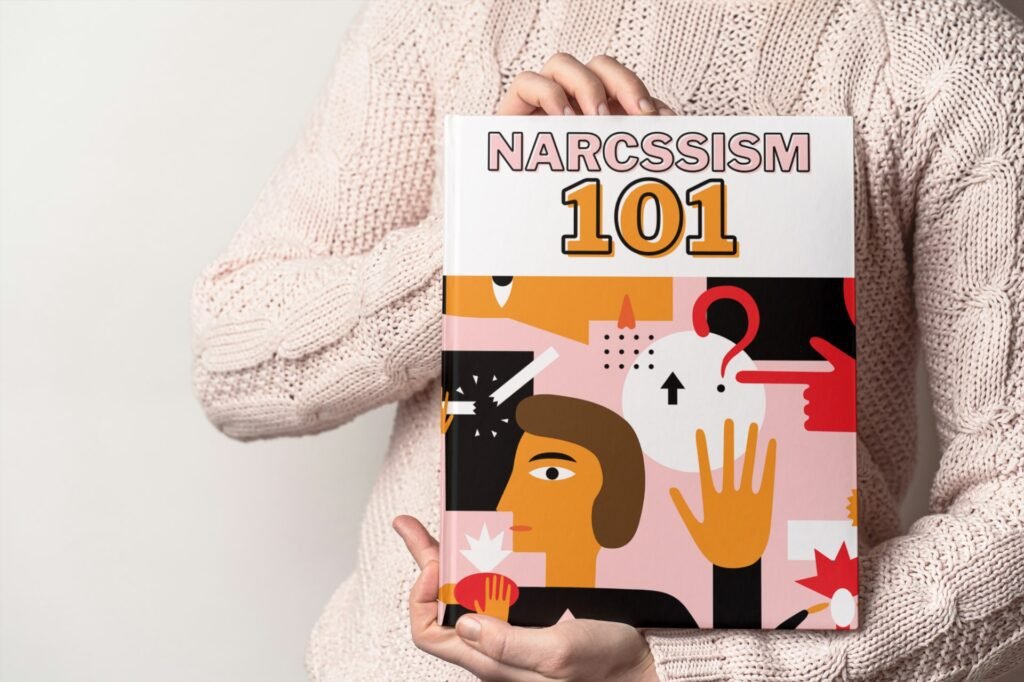Narcissism is a term that is frequently used, often in heated arguments or when interacting with challenging personalities. But what does it mean, and how can you tell if someone in your life (or even you) shows narcissistic traits?
Contrary to popular belief, narcissism exists on a spectrum. Not every self-centered person has narcissistic personality disorder (NPD), but chronic patterns of manipulation, entitlement, or lack of empathy can signal deeper issues. Understanding these traits can help you protect your boundaries and foster greater honesty and self-awareness.
What Is Narcissism, Really?
At its core, narcissism involves an inflated sense of self-importance, a deep need for admiration, and a lack of empathy for others (American Psychiatric Association, 2013). While healthy self-confidence is good, narcissistic traits cross the line into emotional harm, especially when they affect relationships.
There are two primary forms of narcissism:
- Grandiose narcissism: Exhibited through arrogance, dominance, and attention-seeking behavior.
- Vulnerable narcissism: Characterized by hypersensitivity, insecurity, and passive-aggressive tendencies.
Many people show some narcissistic traits—especially in times of stress or insecurity. The issue arises when these traits become chronic and toxic.
Common Signs of Narcissism in Others
Here are red flags to look for in friends, family, or partners:
1. They dominate conversations.
They rarely listen unless it’s about them, and tend to steer the topic back to themselves.
2. They lack empathy.
They dismiss your feelings or struggles, often reacting with indifference or irritation.
3. They manipulate through guilt or charm.
Whether it’s love-bombing or gaslighting, narcissists often use emotional tactics to control others (Campbell & Foster, 2007).
4. They can’t take criticism.
Even gentle feedback may be met with rage, denial, or blame-shifting.
5. They crave constant admiration.
They may fish for compliments, compare themselves to others, or exaggerate accomplishments.
6. They blame others for their mistakes.
Narcissists struggle to take responsibility and often create a narrative where they’re the victim or hero.
7. They exploit relationships.
They may use people to meet their needs, often without guilt or remorse.
Signs You Might Be Struggling With Narcissistic Traits
Self-reflection is challenging, but it’s one of the most effective steps toward personal growth. Here’s what to look for in yourself:
- You react defensively to criticism, even when it’s constructive.
- You struggle to feel happiness for others’ successes genuinely.
- You secretly believe you’re “better” or more deserving than most.
- You often need external validation to feel “enough.”
- You manipulate situations to maintain control or superiority.
If these patterns sound familiar, it doesn’t mean you have NPD, but it may be a sign to explore deeper with the help of a therapist.

Why People Become Narcissistic
Narcissistic traits often stem from childhood environments, particularly those characterized by inconsistent validation, excessive praise, or emotional neglect (Millon et al., 2004). In some cases, narcissism is a coping mechanism to mask deep-rooted feelings of inadequacy.
What to Do if Narcissism Is Affecting Your Life
If it’s someone else:
- Set clear boundaries and stick to them.
- Limit emotional dependence on that person for approval or support.
- Consider distancing yourself if the relationship is chronically abusive or draining.
If it’s yourself:
- Practice radical self-honesty. Be willing to admit patterns that aren’t serving you or others.
- Develop empathy intentionally—by listening more, judging less, and validating others’ experiences.
- Seek professional support. Therapy, particularly cognitive-behavioral therapy (CBT) or schema therapy, can help you unpack patterns and build healthier self-esteem.
Final Thoughts
Narcissistic traits don’t make someone “bad”—but unchecked narcissism can erode trust, empathy, and connection. Whether you’re recognizing it in someone else or acknowledging it in yourself, the most crucial step is awareness.
Because once you can name it, you can begin to change it.
References
- American Psychiatric Association. (2013). Diagnostic and statistical manual of mental disorders (5th ed.).
- Campbell, W. K., & Foster, C. A. (2007). The narcissistic self: Background, an extended agency model, and ongoing controversies. In C. Sedikides & S. Spencer (Eds.), Frontiers in social psychology: The self. Psychology Press.
- Millon, T., Grossman, S., Meagher, S., Millon, C., & Ramnath, R. (2004). Personality Disorders in Modern Life (2nd ed.). John Wiley & Sons.
“Minna Lyons, a former winner of the Ig Nobel Prize, a research award that “first makes people laugh, and then makes them think,” ran a study to find out if narcissism is linked to estimates of head size. Along with her colleagues from the Universities of Liverpool and Sunderland, Lyons recruited over 300 male and female volunteers.”
Yes, you read that right. The narcissist says they have a bigger head than the rest of us. The Deciphering Covert and Grandiose Narcissists says her lungs are bigger. The study also showed that people who stay up much later than the rest of us also ranked higher on the narcissist scale.
We are not saying that if someone says they have a big head and stays up later, they are true of that crowd. We advise watching for the red flags, and if you notice these tendencies, then take action!

- Sense of self-importance
- Preoccupation with power, beauty, or success
- Entitled
- Can only be around people who are important or special
- Interpersonally exploitative for their own gain
- Arrogant
- Lack empathy
- Must be admired
- Envious of others or believe that others are envious of them
https://www.dukehealth.org/blog/9-signs-of-narcissistic-personality-disorder


